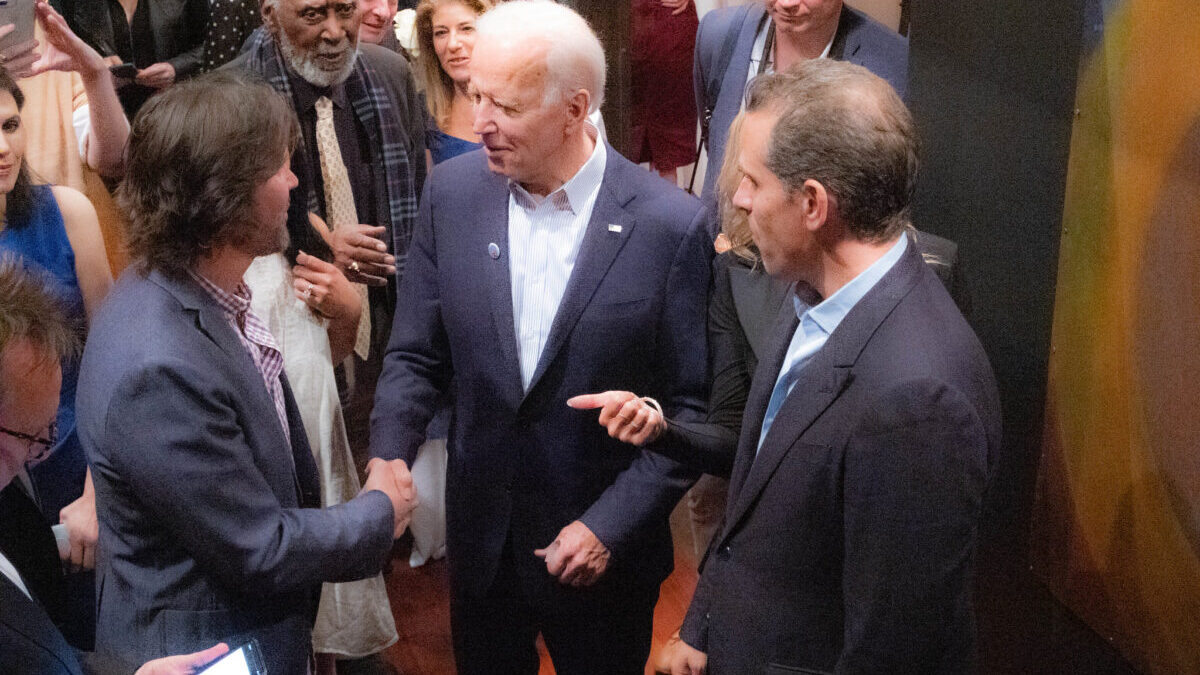The Trump administration’s policy of separating children from their parents at the border rightly caused an outcry, because of the potential damage to the children involved. But there’s another group of children who also deserve our attention.
Democratic Sen. Elizabeth Warren shared a video on Facebook in which a doctor explains the trauma of forced separation:
Forced separation can damage children, body and soul. It can literally impair their brains. The relationship between children and parents is the strongest tie that most people experience, and a threat to that tie is among the most traumatic events somebody can endure. These experiences can disrupt actual brain development. They can alter the very architecture of the brain, which in turn can result in social, emotional, and cognitive impairment for decades. … Studies have shown that beating and torture [produce similar effects on the brain as] family separation.
Indeed, studies show that maternal separation is a major stressor even in newborn infants. And fifty years of social science evidence teach us that, on average, children separated from one or both biological parents fare worse, across virtually every measurable indicator, than children who have not been separated from their own married parents.
Given how crucial intact families are to human flourishing, it is appalling that a purportedly pro-life and pro-family Trump administration would use any measure of its discretion to rip families apart. But I would also note that many of those loudly championing children at the border take an incompatible position when children are separated from their parents under other circumstances.
Children’s need for their parents in cases of intentional single-parenthood, divorce, surrogacy, and abortion, is no different than the needs of the children at the U.S. border. In these cases, though, the same needs of children to be raised by those who are most likely to fully invest, care for, and protect them — their biological parents — are ignored.
This is not to say, such as in the case of most adoptive parents, that there are not heroic individuals out there who have stepped up to give non-biological children the best life possible under what would otherwise be extremely difficult circumstances. This is also not to say that divorce is never warranted — although modern attitudes about the purposes of marriage and the no-fault system have overwhelmingly been a bust for children.
The 1970s models of thinking that “children are resilient” in the face of divorce has given way: “The myth of the good divorce has not stood up well in the face of sustained social scientific inquiry – especially when one considers the welfare of children exposed to their parents’ divorces,” observes University of Virginia sociologist Bradford Wilcox.
Similarly, as Ross Douthat noted just this week in his aptly titled New York Times column, “The Handmaids of Capitalism,” today’s attitudes about surrogacy have changed in a way that ignores children’s needs for their own parents. Notably, this attitude is far different from the bulk of 1980s feminists.
In the landmark 1987 case on traditional surrogacy (versus gestational surrogacy, in which a surrogate mother is carrying a child who was conceived using another woman’s egg), Baby M, the U.S. Supreme Court ruled in favor of a mother who wanted to break a surrogacy agreement to keep her child. Gloria Steinem and Betty Friedan endorsed an amicus curiae brief for the mother, which argued, as Douthat explains, “surrogacy violates essential parent-child relations, runs afoul of laws against trafficking in human lives and threatens the dignity of the women being rented.”
But despite the extremely foreseeable threats to the welfare of humanity that a capitalist utopia for buying and selling humans creates, Washington State just this year voted to allow “compensated surrogacy,” effectively commodifying a breeding class of women and children. The fertility industry hailed the law as repairing “a portion of the damage done to the cause of reproductive freedom and surrogacy by the Baby M case,” without even a nod to the needs and desires of children to know and be known by their biological parents. In other words, the message of the doctor quoted in the Warren post is notably absent.
The evidence is clear that children cannot be separated from their parents without enduring some kind of serious loss. This fact is obvious to us when we look at the faces of the innocents enduring unthinkable trauma at the U.S. border. But it is equally true in other cases, even where adults’ wishes conflict with children’s rights in this regard. No amount of wishing can change children’s biological imperatives, and we should always put children’s needs first — certainly ahead of adults’ desires, and most certainly ahead of politics on any and all sides.









